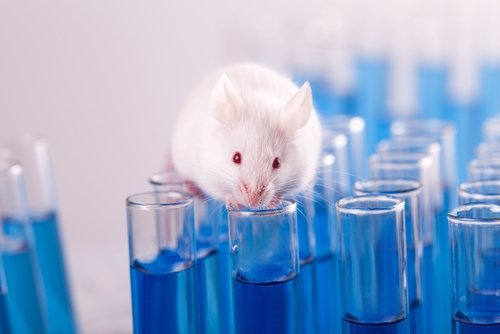Using ASOs to Target Specific Gene May Have Potential to Treat CMT1A, Study Shows

The use of antisense oligonucleotides (ASOs) to target the PMP22 gene was found to reverse several features of Charcot-Marie-Tooth disease (CMT) in mice, according to the results of a preclinical study.
ASOs are single-strand synthetic nucleic acid molecules that bind to a specific messenger RNA (mRNA) sequence, promoting its degradation so that no protein is produced.
The research paper was published in The Journal of Clinical Investigation.
Mutations occurring in more than 90 genes have been linked to the development of CMT. The most common form of this disease, known as CMT1A, is caused by the duplication of the PMP22 gene or mutations that will modify its encoded protein, also called PMP22.
Previous studies in mice showed that increased levels of the protein encoded by PMP22 impair the production of myelin, the nerve cell’s protective layer. This will progressively lead to the peripheral nerve cells’ degeneration, characteristic of CMT. Interestingly, a reduction of the PMP22 gene in these mice significantly improved myelination of nerve cells.
But this may be more complex than it appears at first glance. If the levels PMP22 are too low, another neurodegenerative disease will develop, known as hereditary neuropathy with liability to pressure palsies. This highlights not only the important role of the PMP22 gene and its encoded protein PMP22 for the health of nerve cells, but also that the tight control of their levels is critical for the development of neuropathies.
Based on the available evidence, finding ways to reduce PMP22 levels is the most logical therapeutic approach to treat CMT1A patients. Despite efforts made to date, no therapy has been approved for this disease. Most of the proposed drugs lack effectiveness, while others were found to trigger adverse cellular effects.
In the study titled “PMP22 antisense oligonucleotides reverse Charcot-Marie-Tooth disease type 1A features in rodent models,” researchers from Ionis Pharmaceuticals showed the potential of ASOs to achieve the therapeutic reduction of PMP22 gene levels and reverse CMT1A features.
“Using antisense to target PMP22 offers an exciting therapeutic opportunity for CMT1A patients who currently do not have available treatment options,” Amy Gray, CEO of the Charcot-Marie-Tooth Association, said in a press release.
The team tested ASOs that were specifically designed to target the mRNA sequence of PMP22 in two animal models of CMT1A.
They showed that subcutaneous injection of PMP22-targeting ASOs could significantly improve myelination and nerve cell function. In addition, they found that ASO treatment would induce a gene expression reprogramming associated with the reduction of PMP22 gene levels.
Analysis of the genetic pattern before and after ASO treatment revealed a network of genes, mostly associated to myelin production, being significantly affected.
“Future measurement of these genes, along with PMP22 mRNA in skin biopsies, could provide important biomarkers that can be used in clinical trials,” the researchers wrote.
The team concluded that these preclinical findings “demonstrate the potential therapeutic utility of ASOs in treating CMT1A and elucidate the gene expression networks that respond to successful restoration of normalized PMP22 levels.”
With the support of the Charcot-Marie-Tooth Association, Ionis expects to continue assessing PMP22-targeting antisense drugs to identify the best candidate to pursue clinical development as treatment for patients with CMT1A.





